Brazil neighbors limit travel to halt virus strain's spread
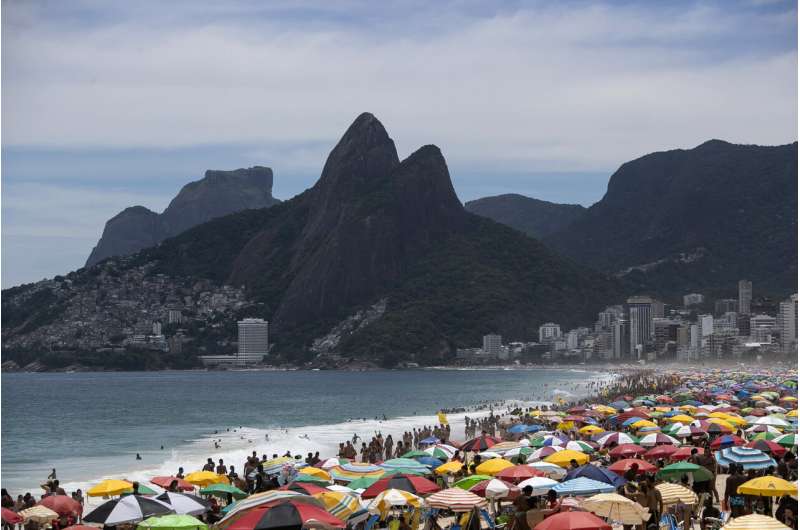
Brazil's neighbors are starting to restrict international travel amid concern about the spread of a new coronavirus variant that experts say may be more contagious and driving a second wave of infections.
Guyana's government closed its border with South America's largest country on Friday, two days after Colombia halted passenger flights to and from Brazil; both nations cited the new variant as their reason. Argentina's government decided to cut in half the number of flights to Brazil starting Feb. 1, according to a Jan. 27 report in state news agency Telam. And Peru on Jan. 26 banned air traffic from Brazil; the governor of Peru's Loreto department bordering Brazil called on the government to shut down land crossings, too.
The clampdown comes as Manaus, the Amazon rainforest's largest city and the site of the variant's outbreak, suffers a brutal second wave of infections. Overrun hospitals watched this month as their oxygen stocks were depleted, causing dozens of patients to die of asphyxiation. The government has scrambled to replenish supplies with an ad hoc plan, but the situation remains touch-and-go and family members of patients are still seeking cannisters of oxygen on their own, albeit fewer than earlier this month.

There has been speculation Manaus may be merely the first city devastated by this new strain. Other cities in Brazil's Amazon region have been crushed since, including Porto Velho, capital of neighboring Rondonia state. Like Manaus, Porto Velho has begun airlifting patients to hospitals out of state. Brazil's former health minister Luiz Henrique Mandetta told newspaper O Globo on Thursday that the new strain could cause a "mega-epidemic" across Brazil within 60 days.
Alarm is growing, but the science has yet to catch up. Viruses are constantly mutating, and new versions—called variants—often emerge, almost all of which are no more perilous than their prior iterations.
The Brazilian variant was first identified in four travelers who had been in Brazil and were tested at an airport outside Tokyo, Japan. It has also been found in a patient who lives in the Minneapolis-St. Paul area, the Minnesota Department of Health said in a statement this week. It contains a set of mutations that may affect its ability to be recognized by antibodies, according to the U.S. Centers for Disease Control and Prevention. Health officials are also worried about variants that were first reported in the United Kingdom and South Africa.
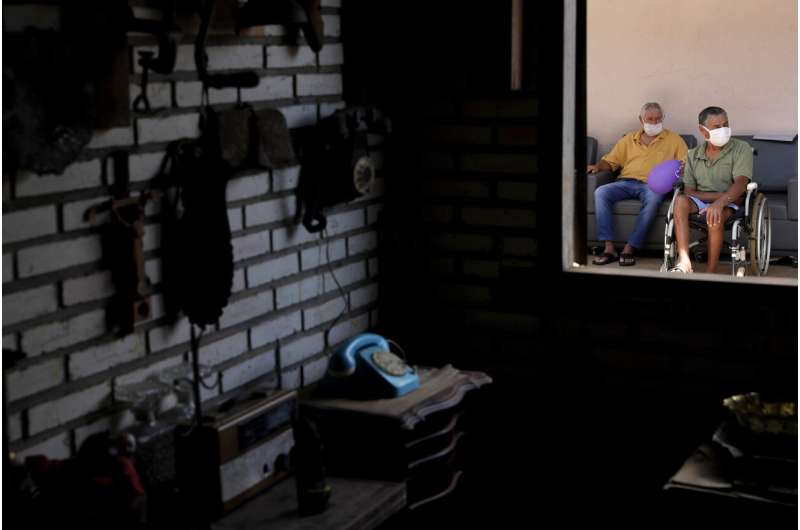
Felipe Naveca, a researcher at the state-owned Fiocruz Amazonia institute in Manaus, said in an interview with The Associated Press this week that the new strain accounted for two-thirds of 90 samples taken between December and mid-January. Of those taken in January alone, the new strain comprised 91%. Naveca said it appears that the variant is more transmissible, based on the frequency with which it has been found, and indications from the U.K. and South African variants that had similar mutations.
Most samples his laboratory analyzed came from Manaus, but the new strain was also found in cities deeper within the Amazon, including Sao Gabriel Cachoeira on the Colombian border.
Sylvain Aldighieri, deputy director of The Pan American Health Organization's health emergencies department, said it remains too early to determine whether the variant is accelerating the virus' spread and that more genetic sequencing is needed. Still, he called on governments to remain vigilant.

Speaking in an interview with the AP on Friday, Guyana's Health Minister Frank Anthony said local private laboratories have already said they are equipped to test for any new strains. The initial 30-day suspension comes with stepped-up border patrols by soldiers and police.
"We have no evidence yet that the new strain of the COVID-19 virus is here, but we are just being cautious," he said.
Anthony acknowledged that the 1,606-kilometer (1,000-mile) border is practically impossible to patrol. Thousands of Guyanese and Brazilians use the official Takatu River Bridge to cross into Guyana daily, while others simply hop across several other small rivers separating the two South American nations to trade, visit with relatives or to work. Many from each country live in one country and work in the other so crossings are normal for many.
-
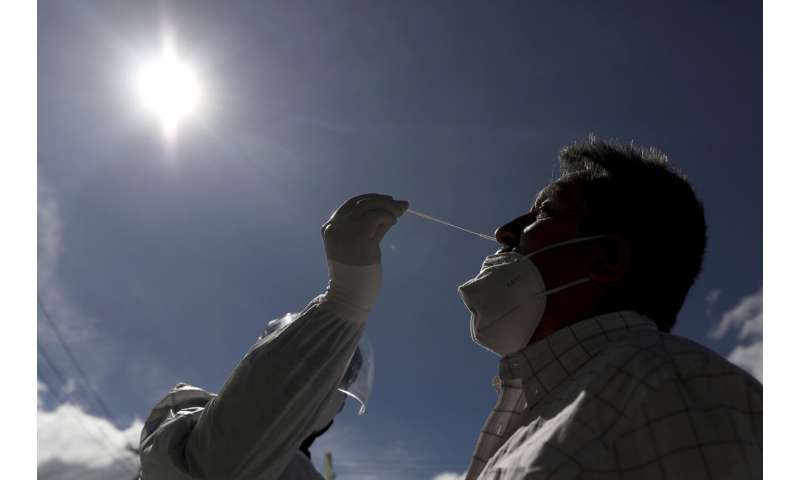
A healthcare worker collects a nasal swab sample to test for COVID-19, in Bogota, Colombia, Wednesday, Jan. 27, 2021. The Colombian government announced that the first shipment of new coronavirus vaccines will arrive in February. (AP Photo/Fernando Vergara) -
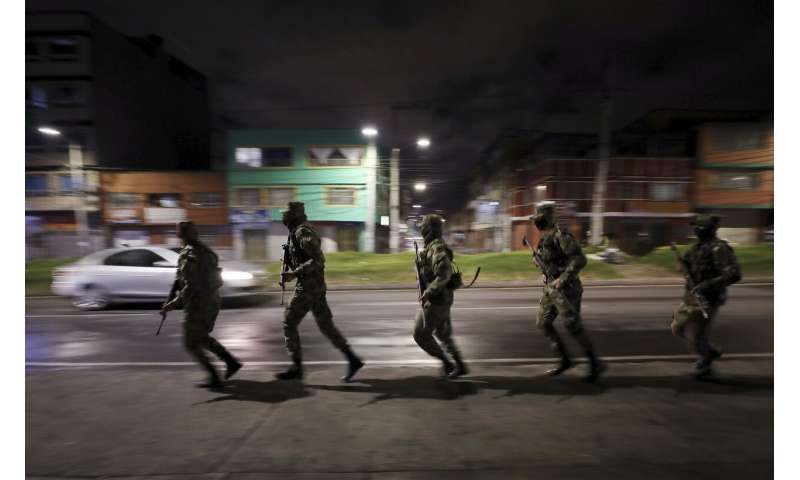
Soldiers run to a military truck to change checkpoint during an official continuous multi-day curfew in an effort to contain the spread of new coronavirus infections, in Bogota, Colombia, Friday, Jan. 22, 2021. Colombia's capital city is reimposing lockdown measures as COVID-19 infections rise around the country. (AP Photo/Fernando Vergara) -
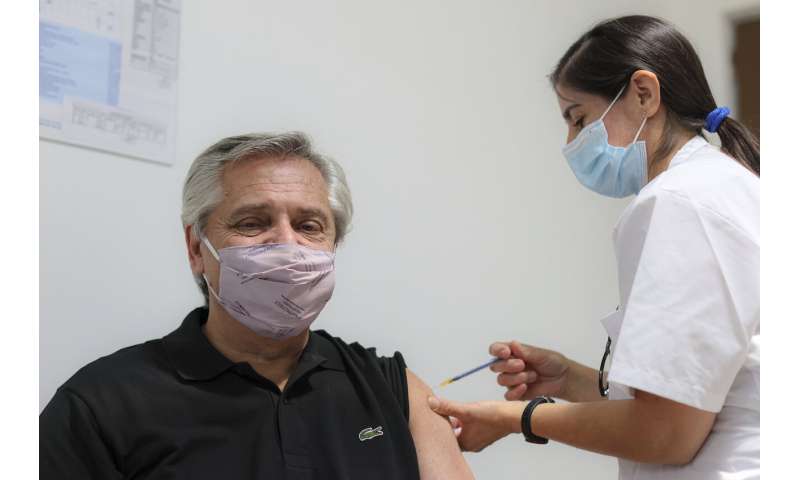
In this photo released by Argentina's presidential press office, Argentina President Alberto Fernandez gets a shot of the Russian Sputnik V vaccine against COVID-19, administered by Nurse Marcela Yanni at the Posadas Hospital in Buenos Aires, Argentina, Thursday, Jan. 21, 2021. (Esteban Collazo/Argentine Presidential Press Office via AP)
Officials in Bolivia and Venezuela, which share two of Brazil's three longest borders, haven't announced any recent changes to restrictions.
Jose Gregorio Díaz Mirabal, general coordinator of the Indigenous Organizations of the Amazon Basin, this week warned that an effective barrier hasn't been implemented.
"There is no guarantee it won't reach (Brazil's) border with Venezuela, with Colombia, Suriname, Guyana," Díaz Mirabal, who is of the Wakuenai Kurripako ethnicity, said in a Zoom call with reporters. ___ AP writer Bert Wilkinson reported from Georgetown. AP writers Melinda Ulloa contributed from Washington, Franklin Briceño from Lima, Almudena Calatrava from Buenos Aires, Regina García Cano from Bogota and Scott Smith from Caracas.
© 2021 The Associated Press. All rights reserved. This material may not be published, broadcast, rewritten or redistributed without permission.

















